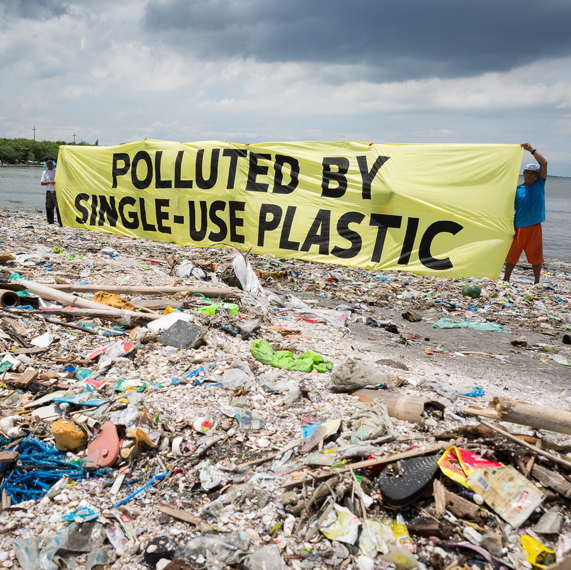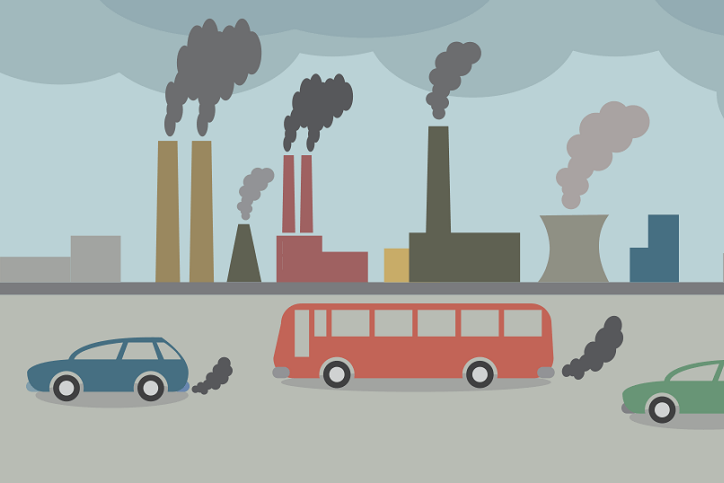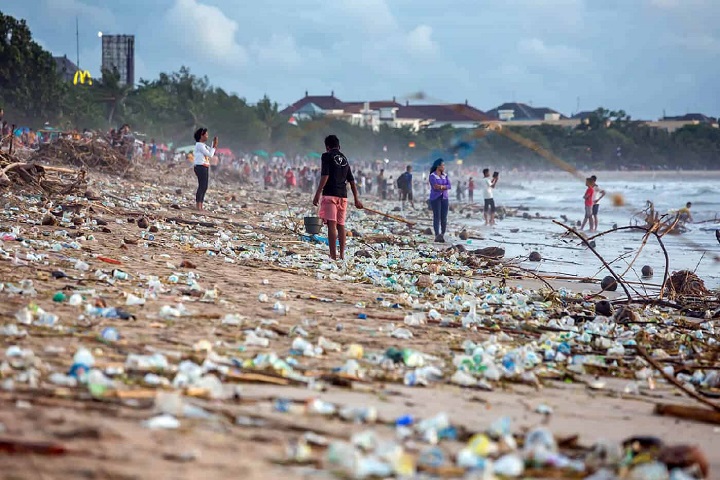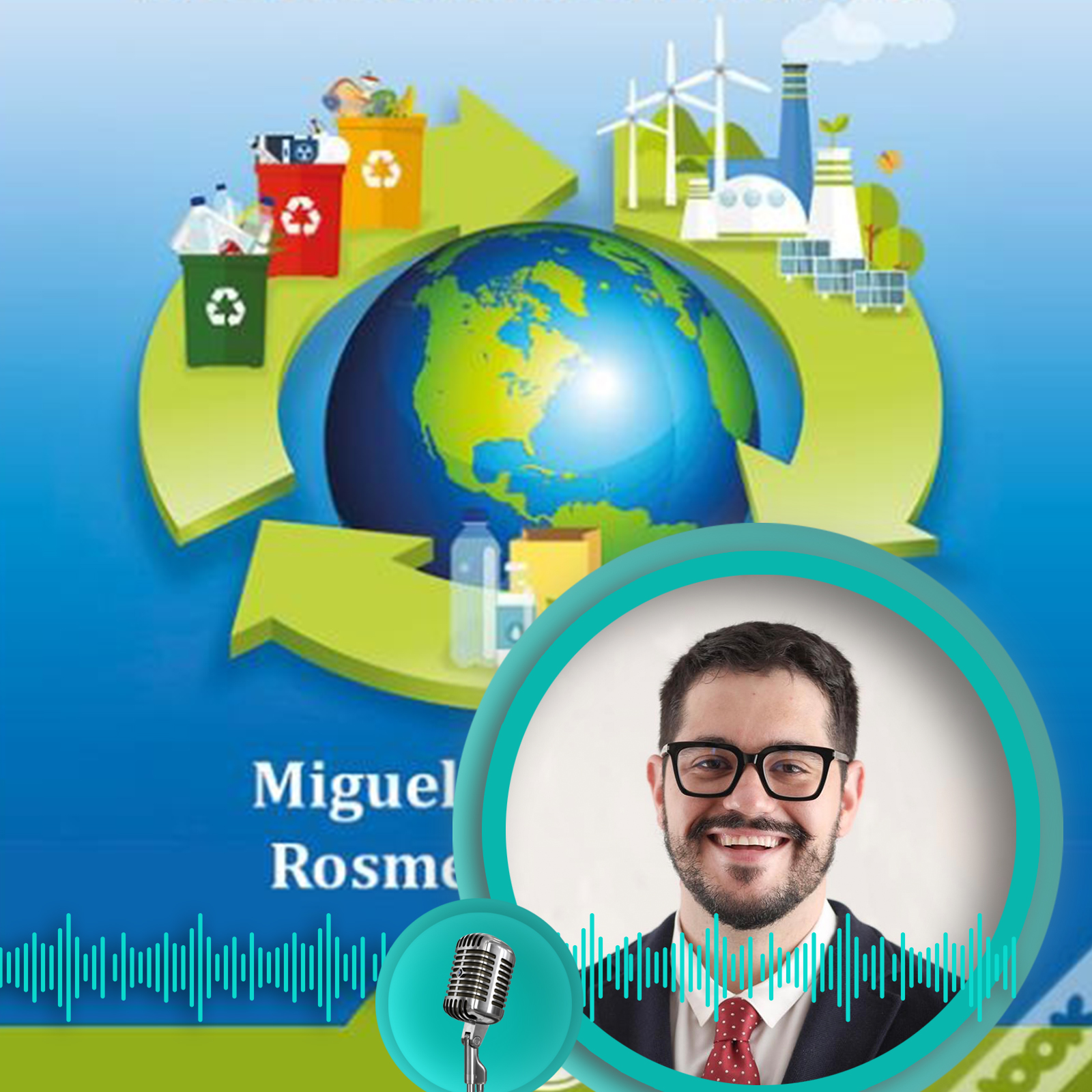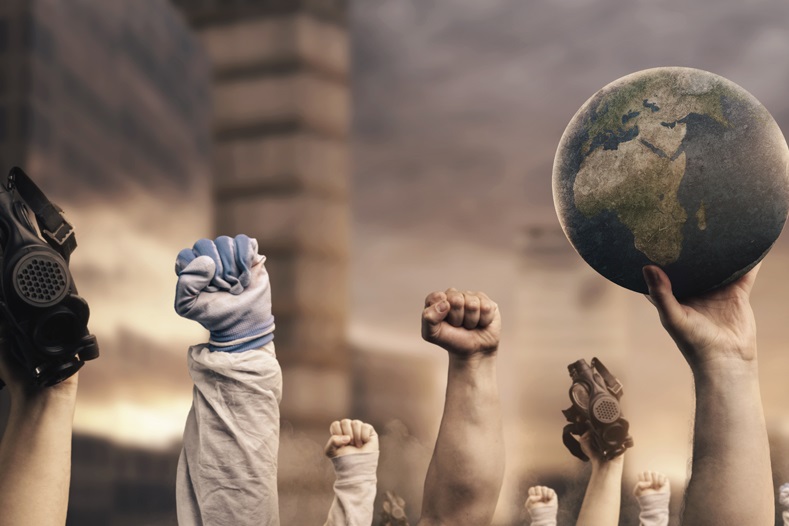-
Could you please explain about your environmental activities and experiences?
I have long had a passion for the environment since childhood. I planted my first tree at the age of 7 years. Growing up in Tetu constituency, Nyeri County, a region known for not only having the highest forest cover in Kenya but also the birthplace to the late Nobel prize winner professor Wangari Maathai, made me understand the value of nature at a young age. I then went on to establish an environmental club in my high school with the help of my geography teacher, who offered to be the club’s patron. Growing up, I knew I wanted to become an environmentalist and that is why I also took up also took up an environmental course at the University.
I have recently graduated from Kenyatta University with a bachelor’s degree in environmental studies and community development. I have also previously served in the leadership of Kenyatta University Environmental Club (KUNEC) for three consecutive years during my time in campus. During my leadership term, I was able to organize numerous tree planting activities, environmental education sessions clean ups and I also inspired many young people to also take action. I have also been very vocal in raising awareness on global environmental challenges as well as calling people to action through platforms such as; institutions, social media, my website; www.lizmazingira.com as well as during conferences and workshops.
Excitingly, my passion and commitment to the environment was recognised when I became the fourth recipient of the Wangari Maathai Scholarship Award. The award, given by the Greenbelt movement, Kenya Community Development Foundation and the Rockefeller foundation, aims to develop action-oriented young people who show strong values and commitment to environmental conservation. The Wangari Maathai Scholarship Fund is an environmental innovations fund set up in memory of Prof. Wangari Maathai that is aimed at developing action-oriented young people with strong values and commitment to the conservation of the physical and social environment in Kenya. It was at this point in 2016 that I began Green Generation Initiative with an aim of nurturing and raising young environmental enthusiasts.
I am now using my passion to not only raise a generation of young environmental enthusiasts through my green generation initiative but also inspiring people to take action on ongoing global environmental challenges.
The initiative has so far trained over 10,000 primary and secondary school children to be environmentally conscious.
I have also been running a campaign that I dubbed 'adopt a tree campaign' since 2017 in which over 30,000 trees seedlings, including fruit trees have been planted in schools so far. 98 percent of the seedlings have survived and are still being monitored. I have also recruited a team of over 30 young volunteers who are all passionate environmentalists and are very committed and dedicated to our work. It is through their efforts that we have been able to have a greater impact. Young people have immense potential to contribute to environmental conservation and my team has demonstrated this through their passion and dedication towards the initiative.
-
What was the motivation of your environmental movement at the first place? Why didn’t you choose another field such as economy or politics and so on?
I have been passionate about the environmental since childhood mostly because I was able to connect to nature when I was still young. I noticed getting angered by environmental injustices such as seeing people throwing trash out of car windows, cutting down of trees, polluted rivers among many others and I always had the urge to want to do something about it when I was still a young girl. Growing up, I often thought to myself ‘Why not nurture and raise more young people to be conscious of the environment at a young age, so that their collective action will help to address global environmental challenges?'. Afterall, there is a saying: “Train up a child in the way he should go and when he is old, he will not depart from it.”
Even so, I would not be where I am today without the support and inspiration of a few very important people. Firstly, my mum. A single mother, she shares my passions and helps me a lot. In fact, I have a tree nursery at home which she helps take care of in spite of her many commitments. I can’t thank her enough. When I told her that I wanted to become an environmentalist and pursue a course in the environmental field at University, she believed in me and has supported me every step of the way in my journey.
The late professor Wangari Maathai has also been a huge source of inspiration. I read books about her, the first one titled ‘unbowed’, which motivated and inspired me to stand strong and follow in her footsteps. I am now more than ever before, determined to leave my mark just as Wangari Maathai did.
-
Why did you choose children and not adults as your targets to develop your green activities?
Inspired by the story of my life, having planted my first tree at the age of 7 years and understanding the value of nature at a young age, I do believe that children are the future and that future is now.
When it comes to environmental conservation, teaching children to have respect for nature and make sustainable, environmentally friendly decisions sets them on a lifelong path of responsible action. Teaching conservation to the next generation is important as attitudes and change of behavior towards the earth’s natural resources begin at an early age. Environmental awareness to children will lead them to be proactive adults concerned about the welfare of their environment and the world they live in. Having grown up understanding the value of nature, I am always conscious of my lifestyle in that I always try to ensure that I impact the environment positively. For instance, since childhood, whenever I have litter that needs to be disposed off and maybe I’m travelling, I drop off the litter in my handbag until I come across a dustbin where I can properly dispose it.
-
How do you overcome financial problems? Are there any funds to support your plan?
Limited funding has been a great challenge for me, especially in instances where I have intended to start up food forests and tree nurseries in the schools that I work with. I have tried to overcome this through fundraising activities that help me secure additional funds and working hard to maximize existing resources. In the past I have used my own personal savings to purchase and produce environmentally branded merchandise, such as t-shirts, which I can sell on to raise more money for tree seedlings.
Luckily, my environmental conservation efforts have paid off at some point especially when I won the Wangari Maathai Scholarship Fund as the fourth recipient in 2016. This is an environmental innovations fund set up in memory of Prof. Wangari Maathai that is aimed at developing action-oriented young people with strong values and commitment to the conservation of the physical and social environment in Kenya.
Each year, the Fund awards a tertiary education scholarship and project seed funding to a woman who has demonstrated outstanding commitment to civic engagement and leadership in environmental conservation and peace issues in Kenya. This fund helped me establish a tree nursery in my home compound to help facilitate tree planting programs in the schools I work with.
-
In your opinion, what are the priorities to mitigate environmental obstacles? Planting trees, cutting fossil fuels or…?
Our planet is on the brink of dangerous climate tipping points, a mass extinction, more plastic in the ocean than fish by 2050 and right now air pollution has become a leading environmental threat to human health. I believe that the real power to help heal the planet is in our very own hands. We have all the solutions and we must all work together to solve the ongoing global environmental challenges. All solutions are equally important. When we come together for nature, we come together to save the earth, and eventually save our own selves from dire effects. Because we cannot develop or do business in a destroyed environment.
Global emissions are still rising and this demonstrates that urgent action is needed on all fronts – curbing emissions, planting trees to offset carbon and developing clean energy solutions.
Global energy demands are expected to double by 2050. In the face of rising global emissions, nations need to scale up efforts to transition away from fossil fuels towards renewable energy globally.
In our quest to ensure action on the ongoing climate emergency, we cannot forget the youth, we cannot forget the marginalized communities, and we definitely cannot forget nature.
We must all join hands in making the world a better place for us and for generations to come by prioritizing environmental conservation and putting people and planet before profits.
-
What are your plans for future? New solutions? New ideas?
One thing that I have always wanted to change for the world, is the mindset of the people towards environmental conservation. I want to inspire people through my work. I want to raise a generation of young, passionate environmentalists who will fight fearlessly to protect our natural resources. I want to change the story and make people understand that we are not doing this for us, but we are doing it for the future generations from whom we have borrowed this planet. I am determined to leave my mark just as the late Professor Wangari Maathai did. I am currently working on food forests establishment in schools as a way of being part of the solution to climate action while still tackling food insecurity issues as well as tree nurseries establishment in schools. The trees will not only help green school and increase the countries forest cover but will also help in climate change adaptation and mitigation while still enhancing environmental consciousness among young people especially through ‘Adopt A tree campaign’. I strongly believe that if we want to change the narrative about the ongoing global environmental challenges, we must begin by changing the mindsets and attitudes of the young children because as they grow, their collective action will help in addressing global environmental challenges.











